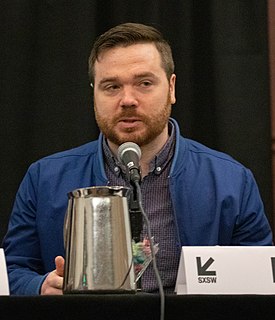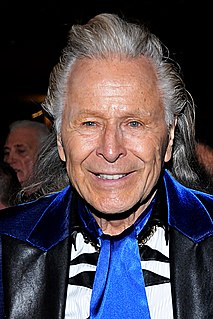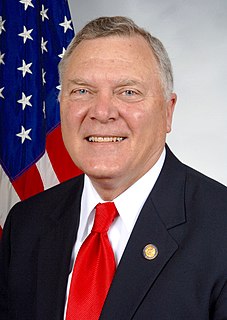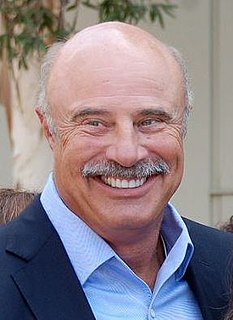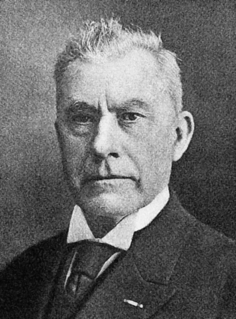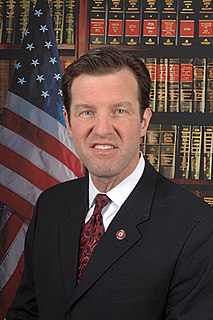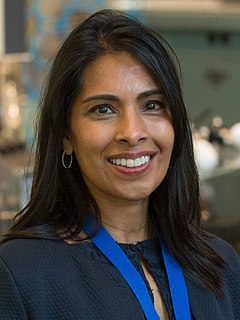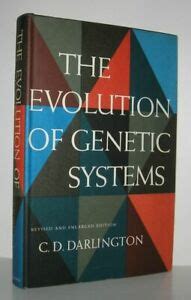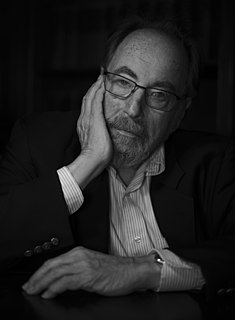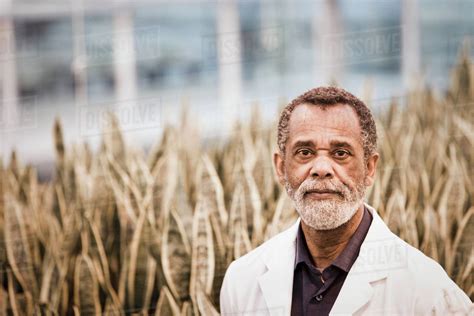Top 1200 Stem Cell Research Quotes & Sayings - Page 2
Explore popular Stem Cell Research quotes.
Last updated on December 19, 2024.
What President Obama has done so masterfully of late is to say, in so many words, "I'm signing this executive order permitting federal funding for stem cell research, but I realize that many good, moral people are opposed to this, and I don't take that lightly." I think we can be more civil and empathetic in our discussions of public policy, and I hope my book can be a contribution to that tone.
The average person doesn't understand what a stem cell is. There's a lack of health literacy in our nation. So the public can't really get into this dialogue because they don't understand the complexity of stem cells, not the faith-based approach, not the ideological or political, but the science behind stem cells.
Stem cells are being used for anti-aging, and the University of Miami is doing a study about that to prove that it is true. They are looking at me, and my markers have shown exactly that I have been actually reversing my aging and getting younger. I am taking perhaps more stem-cell treatment than anybody else in the world.
Once I started to get aligned with the God in me, something hit me hard: I learned that our worth, our validation, our purpose and our acceptance don't stem from what we should do. They don't stem from what we have. They don't stem from what we've done or who we were. They stem simply from the fact that we are.
I strongly oppose cloning, as do most Americans. We recoil at the idea of growing human beings for spare body parts or creating life for our convenience. And while we must devote enormous energy to conquering disease, it is equally important that we pay attention to the moral concerns raised by the new frontier of human embryo stem cell research. Even the most noble ends do not justify any means.
In its most primitive form, life is, therefore, no longer bound to the cell, the cell which possesses structure and which can be compared to a complex wheel-work, such as a watch which ceases to exist if it is stamped down in a mortar. No, in its primitive form life is like fire, like a flame borne by the living substance;-like a flame which appears in endless diversity and yet has specificity within it;-which can adopt the form of the organic world, of the lank grass-leaf and of the stem of the tree.
For me, moral questions such as stem-cell research turn upon whether suffering is caused. In this case, clearly none is. The embryos have no nervous system. But that's not an issue discussed publicly. The issue is, Are they human? If you are an absolutist moralist, you say, "These cells are human, and therefore they deserve some kind of special moral treatment."
I speak as a private citizen and not as a representative of the Executive Branch of the United States government. The impression that people of faith are uniformly opposed to stem-cell research is not documented by surveys. In fact, many people of strong religious conviction think this can be a morally supportable approach.
Cell genetics led us to investigate cell mechanics. Cell mechanics now compels us to infer the structures underlying it. In seeking the mechanism of heredity and variation we are thus discovering the molecular basis of growth and reproduction. The theory of the cell revealed the unity of living processes; the study of the cell is beginning to reveal their physical foundations.
The American people overwhelmingly want our troops out of Iraq. They want the federal government to take real and immediate action to combat global warming and to significantly expand support for stem cell research. Democrats almost unanimously support the people's wishes onthese crucial issues. Republicans don't.
Who knew, in 2000, that compassionate conservatism meant bigger government, unrestricted government spending, government intrusion in personal matters, government ineptitude, and cronyism in disaster relief? Who knew, in 2000, that the only bill the president would veto, six years later, would be one on funding stem-cell research? A more accurate term for Mr. Bush's political philosophy might be incontinent conservatism.
Indeed, religion allows people to imagine that their concerns are moral when they are highly immoral - that is, when pressing these concerns inflicts unnecessary and appalling suffering on innocent human beings. This explains why Christians like yourself expend more "moral" energy opposing abortion than fighting genocide. It explains why you are more concerned about human embryos than about the lifesaving promise of stem-cell research. And it explains why you can preach against condom use in sub-Saharan Africa while millions die from AIDS there each year. (25)
If out of concern over cloning, the U.S. Congress succeeds in criminalizing embryonic stem-cell research that might bring treatments for Alzheimer's disease or diabetes - and Dr. Fukuyama lent his name to a petition that supported such laws - there would be real victims: present and future sufferers of those diseases.
Both in Britain and America, huge publicity has been given to stem cells, particularly embryonic stem cells, and the potential they offer. Of course, the study of stem cells is one of the most exciting areas in biology, but I think it is unlikely that embryonic stem cells are likely to be useful in healthcare for a long time.
A good person is one who follows the Ten Commandments and the golden rule. There is plenty of precedent in history to guide us and we probably evolved to be sensitive to Bible-Golden Rule situations. But the dilemmas faced by a worker - a journalist, an architect, an auditor - or by a citizen (what position to take on stem cell research, whether to run for office, what is the proper balance between taxation and social nets) - are not questions that can be answered by traditional texts or precedents.
Tomorrow you're all going to wake up in a brave new world, a world where the Constitution gets trampled by an army of terrorist clones created in a stem-cell research lab run by homosexual doctors who sterilize their instruments over burning American flags. Where tax and spend Democrats take all your hard-earned money and use it to buy electric cars for National Public Radio and teach evolution to illegal immigrants. Oh... and everybody's high!
